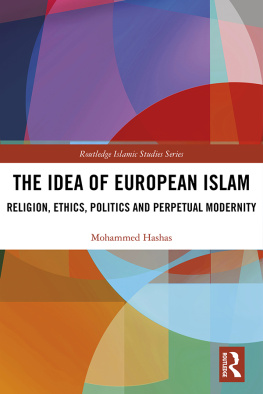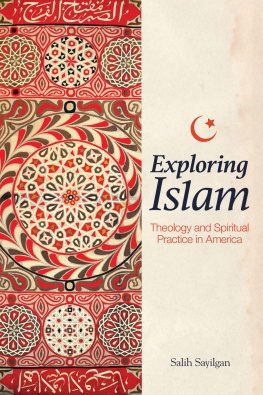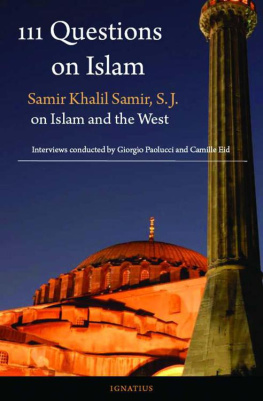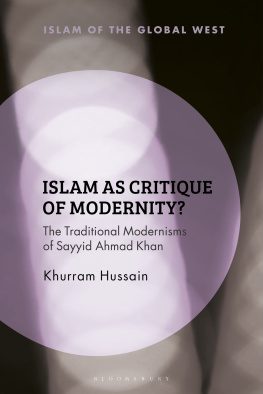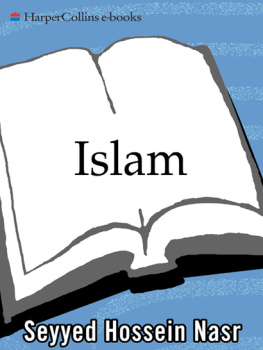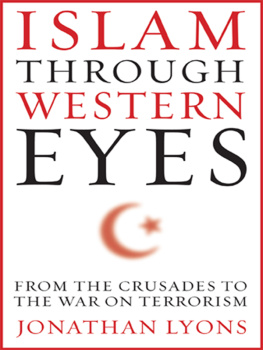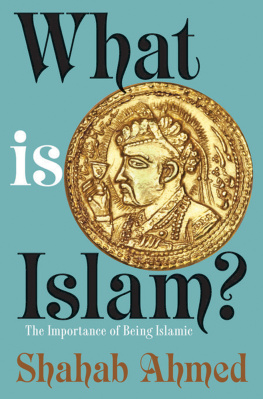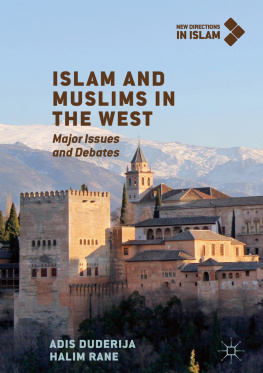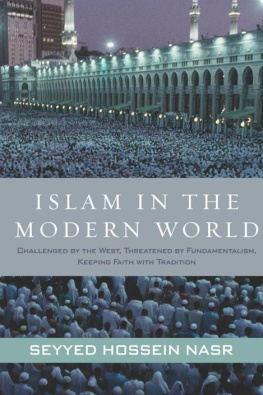Table of Contents
Pages
Mohammed Hashass book points to ways to break away from such a clash of essentialized and inverted perceptions of Islam and Muslims by focusing on the original thinking of European Muslim thinkers who are providing new theological responses to address the specifics of European Muslims, therefore taking a much needed distance from Middle Eastern and/or salafi religious discourses. His work discusses the specificity of European Islamic thinking and emphasizes the importance of considering it as seriously as we consider thinkers in the Middle East or Asia.
Jocelyne Cesari, Georgetown University and University of Birmingham
In this meticulous and frequently brilliant study of the ideas, practices and precedents of European Islam, Mohammed Hashas illuminates and engages intellectual landscapes at the intersection of geography, theology, philosophy and politics. This book deserves a wide readership. After the dust settles, and it always does, The Idea of European Islam will remain on bookshelves and syllabi for years to come.
Jonathan Laurence, Professor of Political Science, Boston College
In a serious effort to capture the contours and details of European Islam, Mohammed Hashas provides an engaging account of several Muslim thinkers in Europe. He provides a theory to discuss the content of Muslim moral philosophy, theology and politics in conversation with leading thinkers based in Europe and those outside the continent in a search for solutions. Provocative as well as engaging. Anyone interested in one of the most important questions regarding the future of Europe in an age of migration and technological acceleration will find this to be an important book.
Ebrahim Moosa, Professor of Islamic Studies, University of Notre Dame, USA
The Idea of European Islam
Suspicions about the integration of Islam into European cultures have been steadily on the rise, and dramatically so since 9/11. One reason lies in the visibility of anti-Western Islamic discourses of salafi origin, which have monopolized the debate on the true Islam, not only among Muslims but also in the eyes of the general population across Europe; these discourses combined with Islamophobic discourses reinforce the so-called incompatibility between the West and Islam.
This book breaks away from this clash between Islam and the West, by arguing that European Islam is possible. It analyzes the contribution that European Islam has made to the formation of an innovative Islamic theology that is deeply ethicist and modern, and it clarifies how this constructed European Islamic theology is able to contribute to the various debates that are related to secular-liberal democracies of Western Europe. uses the frameworks from three major philosophers and scholars to approach the idea of European Islam in the context of secular-liberal societies: British scholar George Hourani, Moroccan philosopher Taha Abderrahmane and the American philosopher John Rawls. The book shows that the ongoing efforts of European Muslim thinkers to revisit the concept of citizenship and political community can be seen as a new kind of political theology, in opposition to radical forms of Islamic thinking in some Muslim-majority countries.
Opening a new path for examining Islamic thought in and of Europe, this book will appeal to students and scholars of Islamic Studies, Islam in the West and Political Theology.
Mohammed Hashas is a Research Fellow at LUISS Guido Carli University of Rome, Italy.
Routledge Islamic Studies Series
This broad ranging series includes books on Islamic issues from all parts of the globe and is not simply confined to the Middle East.
The Teaching and Study of Islam in Western Universities
William Shepherd, Toni Tidswell, Paul Trebilco and Paul Morris
Muslim Active Citizenship in the West
Mario Peucker and Shahram Akbarzadeh
Refashioning Secularism in France and Turkey
The Case of the Headscarf Ban
Amlie Barras
Islam, Context, Pluralism and Democracy
Classical and Modern Interpretations
Yaser Ellethy
Young Muslim Change-Makers
Grassroots Charities Rethinking Modern Societies
William Barylo
Dawa and Other Religions
Indian Muslims and the Modern Resurgence of Global Islamic Activism
Matthew J. Kuiper
A Genealogy of Islamic Feminism
Pattern and Change in Indonesia
Etin Anwar
The Idea of European Islam
Religion, Ethics, Politics and Perpetual Modernity
Mohammed Hashas
For more information about this series, please visit: www.routledge.com/middleeaststudies/series/SE0516
The Idea of European Islam
Religion, Ethics, Politics and Perpetual Modernity
Mohammed Hashas

First published 2019
by Routledge
2 Park Square, Milton Park, Abingdon, Oxon OX14 4RN
and by Routledge
711 Third Avenue, New York, NY 10017
Routledge is an imprint of the Taylor & Francis Group, an informa business
2019 Mohammed Hashas
The right of Mohammed Hashas to be identified as author of this work has been asserted by him in accordance with sections 77 and 78 of the Copyright, Designs and Patents Act 1988.
All rights reserved. No part of this book may be reprinted or reproduced or utilized in any form or by any electronic, mechanical, or other means, now known or hereafter invented, including photocopying and recording, or in any information storage or retrieval system, without permission in writing from the publishers.
Trademark notice: Product or corporate names may be trademarks or registered trademarks, and are used only for identification and explanation without intent to infringe.
British Library Cataloguing-in-Publication Data
A catalogue record for this book is available from the British Library
Library of Congress Cataloging-in-Publication Data
Names: Hashas, Mohammed, author.
Title: The idea of European Islam : religion, ethics, politics and perpetual modernity / Mohammed Hashas.
Description: New York, NY : Routledge, [2018] | Series: Routledge Islamic studies series ; v. 29 | Includes bibliographical references and index.
Identifiers: LCCN 2018014843| ISBN 9781138093843 (hbk) | ISBN 9781315106397 (ebk)
Subjects: LCSH: IslamEurope. | MuslimsEurope. | Islam and politicsEurope.
Classification: LCC BP65.A1 H37 2018 | DDC 297.094dc23
LC record available at https://lccn.loc.gov/2018014843
ISBN: 978-1-138-09384-3 (hbk)
ISBN: 978-1-315-10639-7 (ebk)
Typeset in Times New Roman
by Wearset Ltd, Boldon, Tyne and Wear
To my parents
for their love and life of generous giving
Contents
Foreword
Jocelyne Cesari
In the conclusion of The Oxford Handbook of European Islam (2015), I argued that if European Islam means the adjustment of Muslims practices to Europes post-Enlightenment values and norms such as human rights, rule of law, democracy, and gender equality, European Islam already exists. In fact, a plethora of sociological and anthropological work shows that these adjustments are happening. At the same time, suspicions about the integration of Islam into European cultures have been steadily on the rise and dramatically so since 9/11. One reason lies in the visibility of anti-Western Islamic discourses of salafi origin, which have monopolized the debate on the true Islam not only among Muslims but also in the eyes of the general population across Europe, hence reinforcing the so-called incompatibility between the West and Islam. In salafi thinking, good Muslims are religiously conservative, wear the hijab, follow strict gender separation, avoid promiscuity, and limit their relations with non-Muslims or Muslims who do not behave like them. In contrast, bad Muslims have been contaminated by the Western lifestyle and values and, therefore, are in need of purification. Although this discourse does not reflect the reality of Muslim religious practices, it nevertheless operates as an authoritative interpretation of Islamic orthodoxy and influences Muslims identification with their religious tradition. Thus, the good Muslim becomes an ontological category based on total acceptance without critique of divine law, which is defined as immutable. As an inverted image, the good Muslims in the eyes of Europeans are secular and Westernized while the bad Muslims are doctrinal, anti-modern, and virulent. In other words, a distinction between radical, bad Islam and moderate, good Islam has become a common political framing across European democracies. In this sense, the clash is not between civilizations but between essentialized and inverted perceptions of Islam and Muslims that reinforce each other.

